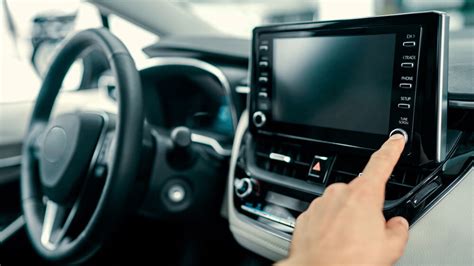Hyundai is an automobile brand that is known for its reliable and affordable cars. The question of whether or not Hyundais are expensive to repair is an important one, as it can influence your decision to purchase a Hyundai vehicle. Fortunately, it turns out that Hyundai cars are actually quite affordable to maintain and repair.
Hyundai has a strong reputation for reliability and affordability, and that is reflected in its repair costs. According to RepairPal, the average repair cost for a Hyundai is $468, which is less than the average for all makes and models. This makes the average repair cost for a Hyundai less expensive than most other cars. Additionally, Hyundai parts are generally more affordable than parts for other cars, which can help keep your repair costs down.
Hyundai also offers a variety of warranties on their vehicles, including a 10-year/100,000 mile powertrain warranty and a 5-year/60,000 mile new vehicle limited warranty. These warranties can help keep repair costs down, as most repairs and replacements are covered under the warranty. Additionally, Hyundai’s roadside assistance program can help you if your car needs to be towed or if you experience a breakdown.
Overall, Hyundais are not expensive to repair. The average repair cost is lower than most other cars, and Hyundai offers a variety of warranties and roadside assistance programs to help keep your repair costs down. If you are considering buying a Hyundai, rest assured that it is a reliable and affordable vehicle that won’t break the bank when it comes time for repairs.
The Cost Of Hyundai Parts And Repairs
Are you considering buying a Hyundai but wondering if it’s expensive to repair and maintain? The cost of Hyundai parts and repairs can vary depending on the model and age of your vehicle, the type of repair required, and the cost of parts.
When it comes to Hyundai repairs, the cost is usually quite reasonable compared to other makes and models. Depending on the type of repair needed, the costs can range from minor repairs such as oil changes, tire rotations, and brake repairs to more extensive repairs such as engine rebuilds and transmission replacements.
The cost of Hyundai parts is generally lower than many of its competitors. Genuine Hyundai parts are usually less expensive than aftermarket parts. The cost of parts for older models is usually much lower than for newer vehicles. You can also find used and refurbished parts to help keep repair costs down.
Hyundai vehicles are built to last and they usually don’t require a lot of repairs. When repairs are necessary, the cost of the parts is usually quite reasonable. The cost of labor will also depend on the type of repair needed and the technician’s expertise.
The table below shows approximate Hyundai repair costs for common repairs:
| Repair | Parts | Labor |
|---|---|---|
| Oil Change | $25-75 | $50-100 |
| Tune Up | $200-300 | $100-200 |
| Brake Repair | $100-200 | $150-300 |
| Transmission Replacement | $1,000-3,000 | $500-1,000 |
The cost of Hyundai repairs and parts can vary depending on the type of repair needed and the model of the vehicle. However, Hyundai parts and repairs are usually quite affordable.
Reasons Why Hyundais May Be Costly To Repair
When it comes to Hyundai repair costs, it’s important to understand why they may be costlier than other vehicles. Hyundai vehicles are made with high-quality parts and components, but like any car, they can occasionally need repairs.
The cost of repair for a Hyundai can depend on the model, the year, and the type of repair being done. Several factors can contribute to higher repair costs, including the complexity of the repair and the availability of parts.
The cost of parts can make a big difference in the total cost of repairs. Hyundai parts are typically more expensive than other brands, due to the high quality of materials used and the cost of production. As a result, repair costs may be higher for Hyundais than for other cars.
Another factor is the complexity of the repair. Hyundais use a variety of computerized systems, making some repairs more difficult and costly than on other vehicles. Additionally, if a mechanic is unfamiliar with Hyundai vehicles, they may require more time and effort to diagnose and repair the issue.
Lastly, the availability of parts can affect repair costs. If a part is not in stock, the repair shop may need to order it, which can add to the total cost of the repair. Additionally, if the repair requires a specialized part, it could be more expensive than a regular part.
Overall, Hyundai repair costs can vary greatly depending on the model, the year, the type of repair, and the availability of parts. However, it’s important to remember that the cost of ownership is generally much lower for Hyundais than for other brands. Hyundais tend to be more reliable and require less maintenance than other vehicles, so the long-term cost savings can often outweigh the costs of repairs.
Yes, the cost of repairing a Hyundai is typically high, relative to other car brands.
The cost of repairing a Hyundai may include labor, parts, and additional fees.
Yes, Hyundai usually covers the cost of repairs through its warranty program.
Yes, parts and labor for Hyundais tend to be more expensive than for other cars.
Yes, the cost of repairs for Hyundais usually depends on the type of repair needed.
Yes, it is possible to save money on repairs by using generic or aftermarket parts.
Yes, some independent repair shops may offer discounts on Hyundai repair costs.
Yes, it is possible to extend the warranty on a Hyundai through an aftermarket warranty provider.
Yes, it is possible to purchase a warranty for a used Hyundai from a third-party provider.
Yes, repairs are typically covered by the original manufacturer’s warranty if the vehicle is still within the warranty period.






